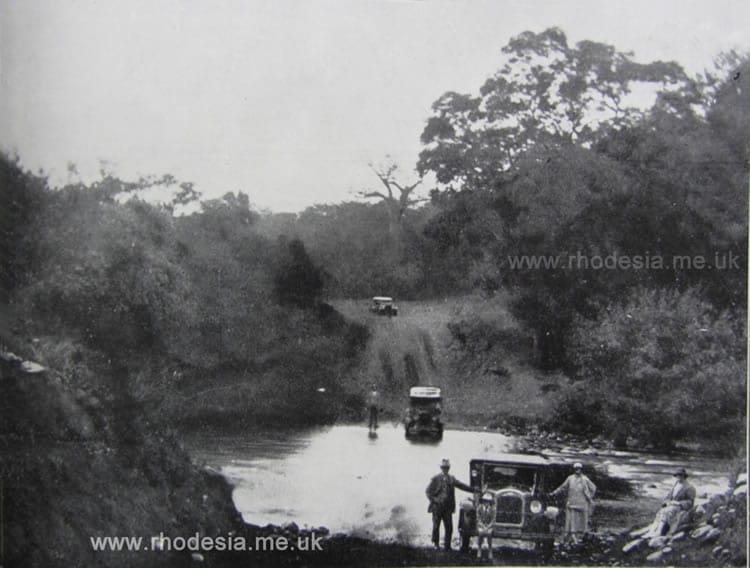Incognito
While Edgar was struggling with his dam he was building his future in politics. Neither was easy.

From the Great Depression until the outbreak of war Rhodesian politics was dominated by economic problems. Edgar was accepted as an economic expert but was constantly attacked by his political opponents and the business community for being an 'academic'--a term of abuse in Rhodesia; policy depended on pragmatic decisions; theory in politics and economics was despised.
Two defeats in the predominantly labor seat of Umtali South taught Edgar much. He learned he could swing an audience at a public meeting and deal effectively with hecklers; he could get a band of dedicated supporters together to work like beavers during the election and even take unpaid leave from their jobs to help him; he could make converts when canvassing by finding out peoples worries and suggesting solutions. But his poor eyesight meant that he was often accused of deliberately cutting people off in the street and their taking offense. Hating letter writing he often failed to respond. His deafness led to misunderstandings and embarrassment with strangers. He hated formal social occasions and his shyness with women were faults he never conquered.
But his work for the Eastern District Farmers Federation, which comprised seven Farmers Associations covering 200 miles from north to south, of which he became president, gradually led to widespread support for him and finally, after seven years, he became a Parliamentarian representing Umtali North, a wealthy and prosperous farming district as well as a section of the mining industry.
With the dam finished too, and the close of his first Parliamentary session at the end of July 1939 he decided to take a well-earned shooting holiday although war was imminent.
He invited Haynes-Hill to join him. He was a very experienced hunter and an outstanding rifle shot, bringing with him a very heavy rifle in case they encountered really dangerous game.
Most unfortunately, Edgar’s farming associate and dear personal friend Geoffrey Mackenzie-Ferguson, whose health had been failing had died in his sleep of a heart attack at Witchwood the previous year. But before he did so on a trip home, Edgar was asked by a cousin of his to take on his third son, Nat Williams. Edgar did, under the same conditions he himself had been hired at Novar Farm; the father agreed to pay Edgar £5 a month for Nat's year of apprenticeship, to include room and board at Witchwood.
Edgar was happy to have the company and a friend of Nat's, John MacDonald, whose father had fallen on hard times which had caused him to interrupt his studies at Cambridge. He emigrated too.
The four of them made up the hunting party. Arriving after a full day's driving at Chipinga, they found, to their consternation, that there were no rooms available at the inn. The manager generously offered them the floor of the lounge. Their party looked pretty rough customers in bush shirts and shorts. Not having brought long trousers, white shirts and ties, the manager made further concessions to allow entry into the bar.
Edgar was a little taken aback on finding the General Manager of the Standard Bank from Cape Town and his acolytes on a tour of inspection of their Rhodesian branches propping up the bar. The GM had just returned from a visit to New York. Edgar had a heated argument with him on the subject of the United States financial policy but managed to preserve his disguise. The GM obviously took Edgar for a local backveld farmer. But when he started quoting John Maynard Keynes the GM seemed rather nonplussed.
Leaving the inn at first light, Edgar stopped off at the local Native Commissioner’s office. The area they were headed to was so remote there was no possibility of hearing any news. He asked him to send an African runner down to fetch him from Portuguese East Africa if war broke out before they got back.
On Edgar’s return from the hunting trip about a month later, he found an indignant letter waiting for him. The GM had discovered Edgar’s identity after he had left and accused Edgar of taking an unfair advantage of him!
The historical novel Whitewashed Jacarandas and its sequel Full of Possibilities are both available on Amazon as paperbacks and eBooks.
These books are inspired by Diana's family's experiences in small town Southern Rhodesia after WWII.
Dr. Sunny Rubenstein and his Gentile wife, Mavourneen, along with various town characters lay bare the racial arrogance of the times, paternalistic idealism, Zionist fervor and anti-Semitism, the proper place of a wife, modernization versus hard-won ways of doing things, and treatment of endemic disease versus investment in public health. It's a roller coaster read.
References:
- Sir Edgar Whitehead's Unpublished Memoirs, Rhodes House, Bodleian Library, Oxford University, by permission.
- Photo credit: Original by A. Howat, scanned by Colin Weyer https://www.rhodesia.me.uk/melsetter/

